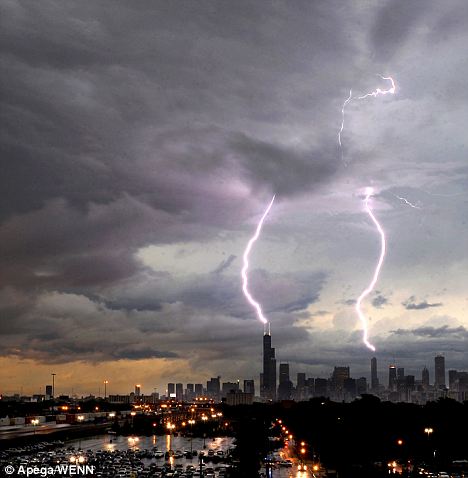Today’s Chicago Tribune business section has a stunning report on the Republic of South Korea’s $25 million plan to reduce energy consumption at some of downtown Chicago’s largest skyscrapers. The operation will focus on retrofitting HVAC and lighting systems in up to 14 buildings. Joining Korea in the agreement are the Building Owners and Managers Association of Chicago (BOMA/Chicago) and the Illinois Science and Technology Coalition. The project will be completed by 2011.
“Our primary goal is to expand to a worldwide smart grid,” Choi Kyunghwan, South Korea’s Minister of Knowledge Economy, said in an interview Wednesday. “If we have a first success story (in Chicago) it will be easier to expand.” South Korea is hoping that what works in Chicago can act as a model for projects elsewhere in the U.S., Canada and Europe.”
According to the story, buildings account for 70% of the city’s carbon footprint, followed by transportation (21%) and industrial emissions and waste (9%). Officials believe the initiative could yield sufficient savings to eliminate the need for one average coal-fired electricity plant. One of the five strategic objectives of the Chicago Climate Action Plan (the blue chip management consulting firm Boston Consulting Group is reportedly providing advisory services pro-bono to the plan) is efficient buildings, so the Korean financing is undoubtedly a boon to Mayor Daley’s speculative bid to continue his dynasty in the Windy City.
The motivation for Korea’s investment in America’s third largest and perhaps architecturally most important metropolis are obvious: a powerful marketing push to capture smart-grid energy markets globally. Regardless of the American public’s view on global warming or the ultimate fate of the rapidly waning energy bill in Congress, the Koreans know America still boasts biggest market for efficient energy technology. Our electricity grid is in shambles — some say up to 70% inefficient — and our green manufacturing industries are getting trounced by China.
On the flip side, Korea’s investment in Chicago indicates that we are still a prime market for international capital flows. And while we are no longer a country that builds things, our procurement decisions can still influence global business and consequently, global warming.
Thank goodness Asian countries are still willing to provide the R&D the world needs to survive.






